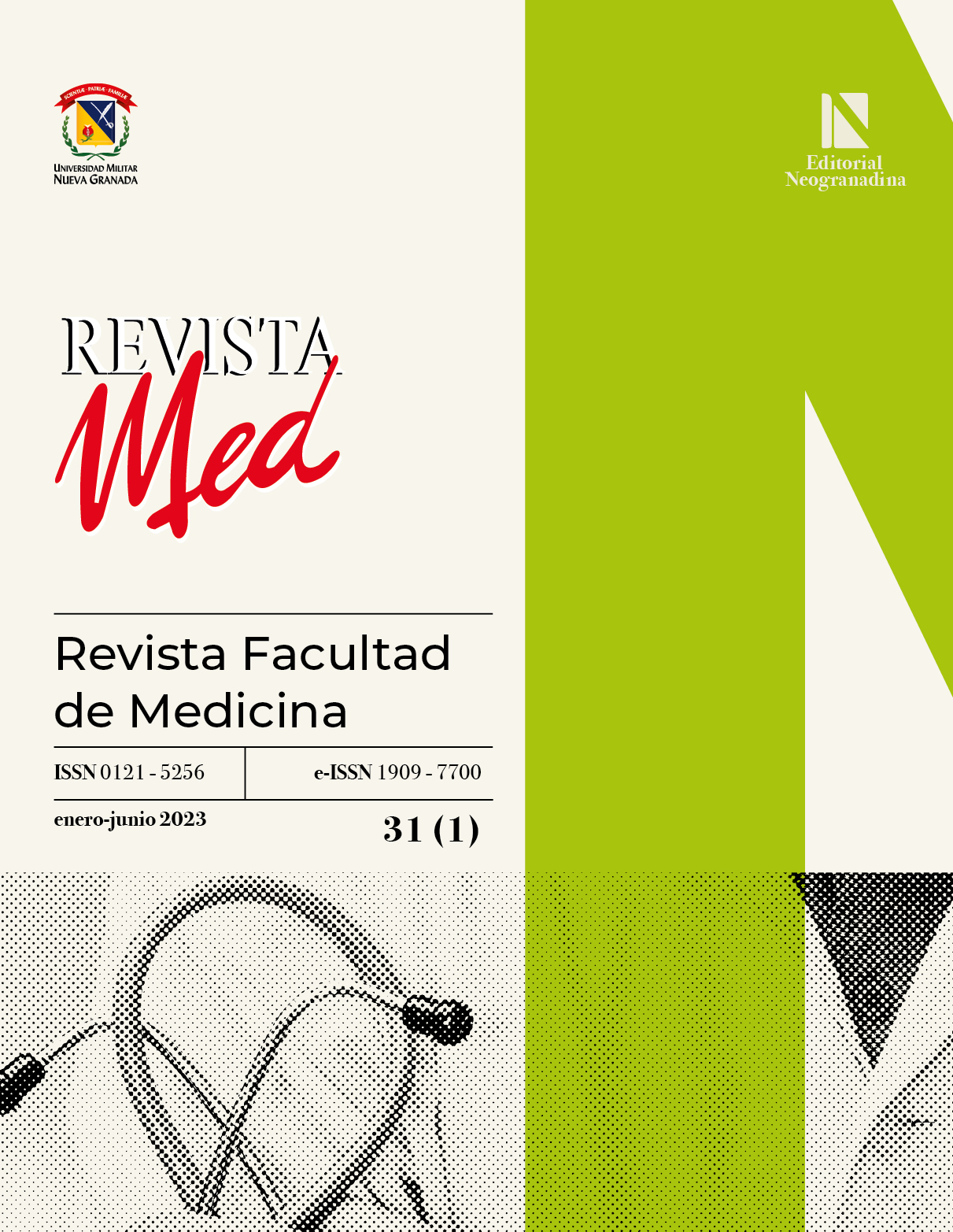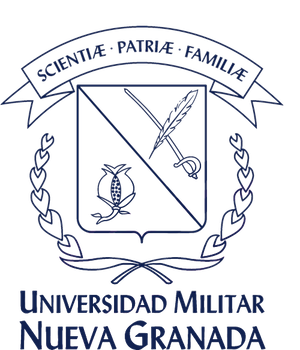Consumption of Energy Drinks and Insomnia Among Non- Medical-Surgical Postgraduate Students in Health, Medellín – Colombia
Abstract
Sleep is essential for both physical and mental health; therefore, insomnia impacts the quality of life for those affected. Energy drinks are capable of boosting the energy levels and mental performance due to their ingredients, such as caffeine and other components; however, they could lead to undesirable effects such as insomnia. Graduate students in the field of health are at high risk of insomnia due to academic, occupational, and family demands, making them more likely to consume energy drinks to stay alert and fulfill their obligations. This article presents a cross-sectional analytical study aimed at evaluating the association between the energy drinks consumption and insomnia. The study included 157 postgraduate students in non-medical-surgical health from a university in Medellín, Colombia, chosen through a stratified random sampling based on academic programs during the period from March to May 2019. Variables such as sociodemographic, clinical, academic, occupational factors, sleep habits, energy drinks consumption and types of energy drinks were analyzed. Insomnia was found in 43.9% of the students (95% CI [36% - 52.1%]), showing a statistical association to the energy drink consumption (PR 1.7, 95% CI [1.01 – 2.92]. This suggest
that both the frequency and consumption of energy drinks are linked to the presence of insomnia in
postgraduate students in non-medical-surgical health.
Downloads
References
Trapp GS, et al. Energy Drink Intake is Associated with Insomnia and Decreased Daytime Functioning in Young Adult Females. Public Health Nutr.2021 Abr;24(6):1328-1337. https://doi.org/10.1017/S1368980020001652
Álvarez DA, et al. Insomnio: Actualización en estrategias diagnósticas y terapéuticas. Neurol Arg.2016 Jul 1;8(3):201-9. https://doi.org/10.1016/j.neuarg.2016.03.003
American Psychiatric Association, editor. Guía de consulta de los criterios diagnósticos del DSM-5™. Arlington,VA: American Psychiatric Publishing; 2014.438 p.
Díaz Cabezas R, et al. Estudio de trastornos de sueño en Caldas, Colombia (SUECA). Acta Med Colomb 2009;34(2):66-72. Disponible en: http://www.scielo.org.co/scielo.php?script=sci_abstract&pid=S0120-24482009000200003&lng=en&nrm=iso&tlng=es
Díaz R, Ruano MI. Prevalencia y persistencia del insomnio crónico estudio SUECA II. Acta Med Colomb.2011 Sep;36(3):119-24. https://doi.org/10.36104/amc.2011.1465
Marco G. ML, et al. Uso de bebidas energizantes y síntomas de insomnio en estudiantes de medicina de una universidad peruana. Rev. chil. neuro-psiquiatr 2011 Dic;59(4):289-301. http://dx.doi.org/10.4067/S0717-92272021000400289
Itany M, et al. Consumption of Energy Drinks Among Lebanese Youth: A Pilot Study on the Prevalence and Side Effects. Int J High Risk Behav Addict. 2014 Jul 1;3(3):e18857. https://doi.org/10.5812/ijhrba.18857
Nadeem IM, et al. Energy Drinks and Their Adverse Health Effects: A Systematic Review and Meta-analysis.Sports Health. 2021 May-Jun;13(3):265-277. https://doi.org/10.1177/1941738120949181
Beledo JF, Simón JAA, Martínez ÁM, eds. Farmacología humana. 6th ed. Elsevier Masson; 2013.
Bebidas energizantes: consumo que crece sin regulación [Internet]. Cerosetenta. 2020 [citado 27 de junio de 2022]. Disponible en: https://cerosetenta.uniandes.edu.co/bebidas-energizantes-consumo-que-crece-sin-regulacion/
Resolucion-4150-de-2009.pdf [Internet]. [citado 21 de octubre de 2022]. Disponible en: https://www.minsalud.gov.co/sites/rid/Lists/BibliotecaDigital/RIDE/DE/DIJ/Resolucion-4150-de-2009.pdf
Madrid CT, et al. Prevalencia y patrones de consumo de bebidas energizantes en estudiantes en una universidad colombiana. Revista Salud Bosque. 2019 Ago 6;9(1):7-15. https://doi.org/10.18270/rsb.v9i1.2637
Dąbrowska-Galas M, et al. Physical Activity Level, Insomnia and Related Impact in Medical Students in Poland. Int J Environ Res Public Health. 2021 Mar 17;18(6):3081. https://doi.org/10.3390/ijerph18063081
Asleep_on_the_Job_SHF_report-WEB_small.pdf [Internet]. [citado 5 de julio de 2022]. Disponible en: https://www.sleephealthfoundation.org.au/files/Asleep_on_the_job/Asleep_on_the_Job_SHF_report-WEB_small.pdf
Mathew JJ, et al. Shift Work Disorder and its Related Factors among Health-Care Workers in a Tertiary Care Hospital in Bangalore, India. Pak J Med Sci. 2018 Sep-Oct;34(5):1076-1081. https://doi.org/10.12669/pjms.345.16026
Rutledge PC, et al. Problematic Drinking Among Postgraduate Students: Binge Drinking, Prepartying,and Mixing Alcohol with Energy Drinks. Substance Use & Misuse. 2016 Jul 2;51(8):972-82. https://doi.org/10.3109/10826084.2016.1152499
Castro AM, et al. Calidad del dormir, insomnio y rendimiento académico en estudiantes de medicina. Duazary:Revista internacional de Ciencias de la Salud.2014;11(2):85-97. https://doi.org/10.21676/2389783X.814
Morin CM. Insomnia Severity Index. Sleep. 2011 May 1;34(5):601-8. https://doi.org/10.1093/sleep/34.5.601
Nadeem IM, et al. Energy Drinks and their Adverse Health Effects: A Systematic Review and Meta-analysis. Sports Health. 2021 May-Jun;13(3):265-277. https://doi.org/10.1177/1941738120949181
Karacan I, et al. Dose-related Sleep Disturbances Induced by Coffee and Caffeine. Clin Pharmacol Ther. 1976 Dec;20(6):682-9. https://doi.org/10.1002/cpt1976206682
Shilo L, et al. The Effects of Coffee Consumption on Sleep and Melatonin Secretion. Sleep Med.2002 May;3(3):271-3. https://doi.org/10.1016/s1389-9457(02)00015-1
Fang H, et al. Depression in Sleep Disturbance: A Review on a Bidirectional Relationship, Mechanisms and Treatment. Journal of Cellular and Molecular Medicine. J Cell Mol Med. 2019 Abr;23(4):2324-2332.https://doi.org/10.1111/jcmm.14170
OPS-OMS. “Depresión: hablemos”, dice la OMS, mientras la depresión encabeza la lista de causas de enfermedad. Disponible en: https://www3.paho.org/hq/index.php?option=com_content&view=articlearticle&id=13102:depression-lets-talk-says-who-as-depression-tops-list-of-causes-of-ill-health&Itemid=1926&lang=es
Julie A, Dopheide P. Insomnia Overview: Epidemiology, Pathophysiology, Diagnosis and Monitoring, and Nonpharmacologic Therapy. Am J Manag Care. 2020 Mar;26(4 Suppl):S76-S84. https://doi.org/10.37765/ajmc.2020.42769
Composto J, et al. Thermal Comfort Intervention for Hot-flash Related Insomnia Symptoms in Perimenopausal and Postmenopausal-aged Women: An Exploratory Study. Behav Sleep Med. 2021 Ene-Feb;19(1):38-47. https://doi.org/10.1080/15402002.2019.1699100
Jee HJ, et al. Effect of Caffeine Consumption on the Risk for Neurological and Psychiatric Disorders: Sex Differences in Human. Nutrients. 2020 Oct 9;12(10):3080. https://doi.org/10.3390/nu12103080
Suh S, et al. Sex Differences in Insomnia: from Epidemiology and Etiology to Intervention. Curr Psychiatry Rep. 2018 Ago 9;20(9):69. https://doi.org/10.1007/s11920-018-0940-9
Proserpio P, et al. Insomnia and Menopause: A Narrative Review on Mechanisms and Treatments. Climacteric.2020 Dic;23(6):539-549. https://doi.org/10.1080/13697137.2020.1799973
Anagnostis P, et al. Menopausal Hormone Therapy and Cardiovascular Risk: ¿Where are we Now? Curr Vasc Pharmacol. 2019;17(6):564-572. https://doi.org/10.2174/1570161116666180709095348
Bollu PC, Kaur H. Sleep Medicine: Insomnia and Sleep. Mo Med. 2019 Jan-Feb;116(1):68-75. PMID: 30862990
Kawata Y, et al. Association between Marital Status and Insomnia-Related Symptoms: Findings from a Population-Based Survey in Japan. Eur J Public Health.2020 Feb 1;30(1):144-149. https://doi.org/10.1093/eurpub/ckz119
Petersen H, et al. Stress Vulnerability and the Effects of Moderate Daily Stress on Sleep Polysomnography and Subjective Sleepiness. J Sleep Res. 2013 Feb;22(1):50-7.https://doi.org/10.1111/j.1365-2869.2012.01034.x
Estrella González IM, Torres Prados MT. La higiene del sueño en el anciano, una labor cercana a la enfermería.Gerokomos. 2015;26(4):123-6. Disponible en:https://scielo.isciii.es/scielo.php?script=sci_abstract&pid=S1134-928X2015000400002
Ojeda-Paredes P, et al. Sleep Quality, Insomnia Symptoms and Academic Performance on Medicine Students. Investigación educ. médica.2019 Ene-Mar;8(29). https://doi.org/10.22201/facmed.20075057e.2019.29.1758
Hartescu I, et al. Increased Physical Activity Improves Sleep and Mood Outcomes in Inactive People with Insomnia: a Randomized Controlled Trial. J Sleep Res. 2015 Oct;24(5):526-34. https://doi.org/10.1111/jsr.12297
Åkerstedt T, et al. Short Sleep—Poor Sleep? A Polysomnographic Study in a large Population‐Based Sample of Women. J Sleep Res. 2019 Ago;28(4):e12812.https://doi.org/10.1111/jsr.12812
Ohayon MM. Epidemiology of Insomnia: what we Know and what we Still Need to Learn. Sleep Med Rev. 2002 Abr;6(2):97-111. https://doi.org/10.1053/smrv.2002.0186
Asleep_on_the_Job_SHF_report-WEB_small.pdf [Internet]. [citado 5 de julio de 2022]. Disponible en: https://www.sleephealthfoundation.org.au/files/ Asleep_on_the_job/Asleep_on_the_Job_SHF_report-WEB_small.pdf
Pappa S, et al. Prevalence of Depression, Anxiety, and Insomnia among Healthcare Workers during the COVID-19 Pandemic: A Systematic Review and Meta-Analysis. Brain Behav Immun. 2020 Ago;88:901-907. https://doi.org/10.1016/j.bbi.2020.05.026
Contreras A, Pérez C. Insomnio, en busca del tratamiento ideal: fármacos y medidas no farmacológicas. Rev Med Clin Condes 2021 Sep-Oct;32(5):591-602.https://doi.org/10.1016/j.rmclc.2021.09.004
Dutheil F, et al. Suicide among Physicians and Health-Care Workers: A Systematic Review and Meta-Analysis. PLoS One. 2019 Dic 12;14(12):e0226361.https://doi.org/10.1371/journal.pone.0226361
Jiménez-López JL, et al. Síntomas de depresión, ansiedad y riesgo de suicidio en médicos residentes durante un año académico. Rev Med Inst Mex Seguro Soc. 2015 Jan-Feb;53(1):20-8. PMID: 25680640

Copyright (c) 2023 Revista Med

This work is licensed under a Creative Commons Attribution-NonCommercial-NoDerivatives 4.0 International License.











